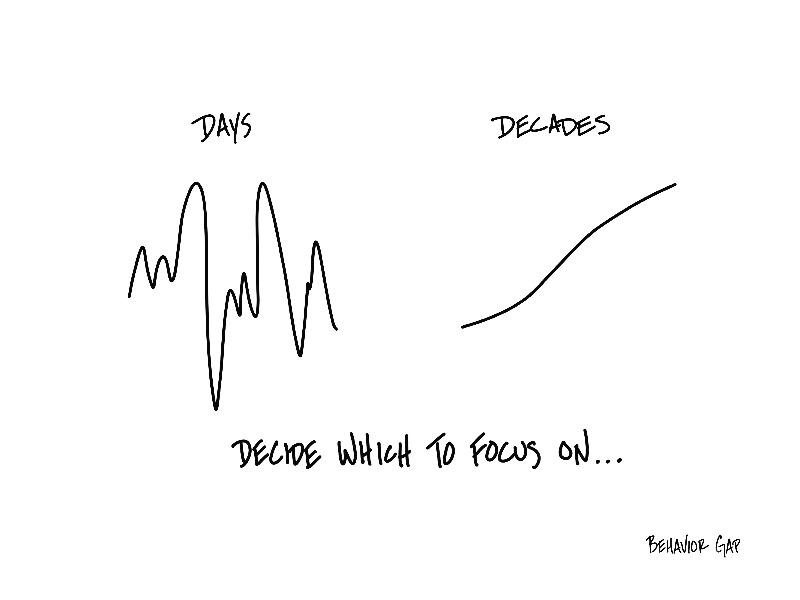

Next week I’m off trekking to Kala Patthar - the viewpoint for Mount Everest.
It was in my Accountability Document last year but I thought Covid had put the idea on hold.
I’ll be gone for a few weeks.
Here’s what I read while preparing for the journey.
I often talk about life and financial planning which is all about goals and mindsets.
But ultimately it’s about good decision-making and our ability to think.
This article in Forbes says the game-changing difference in most financial planning is intention.
It brings planning to life and meaning to money but requires reflection and self-awareness - this means time and effort.
This brought me onto ‘second-order’ thinking by Farnam Street.
It says things are not always as they appear.
Often when we solve one problem, we end up unintentionally creating another. The best way to examine the long-term consequences of our decisions is to use second-order thinking.
- First-order thinking is fast and easy. It happens when we look for something that only solves the immediate problem without considering the consequences. For example, “I’m hungry so let’s eat a chocolate bar”.
- Second-order thinking is more deliberate. It is thinking in terms of interactions and time, understanding that despite our intentions, our interventions often cause harm. Second-order thinkers ask themselves the question “And then what?”
This type of thinking takes a lot of work. But ‘it’s what smart people use to outperform’.
Ben Carlson spoke about stocks and bonds.
The last few weeks, we’ve seen more market volatility.
If we’re assuming a stock market crash is coming at some point in the next 7 years, and it very well could be, you would figure bonds would do well in that scenario.
But as we know stocks and bonds are negatively correlated.
When one asset class does well, another performs poorly.
It’s this relationship that provides a cushion for portfolios.
So if you’re wondering what to do next regarding your investments, read this first.
No one can predict what may or may not happen in the markets.
But we get to decide what we focus on.
When it comes to investing, that means you have a choice. If you choose to focus on days, you are signing up to make yourself miserable. And for no good reason.
If you choose to focus on days, you are signing up to make yourself miserable. And for no good reason.
On the other hand, when it comes to investing, we actually get rewarded for ignoring the daily noise.
As Morgan Housel says in his book The Psychology of Money, “Warren Buffett is a phenomenal investor. But you miss a key point if you attach all of his success to investing acumen… His skill is investing, but his secret is time.”
More in Carl Richards’ latest piece.
This month is Breast Cancer Awareness Month.
For those who want to better understand the spectrum of breast disease and statistics, treatment, support and resources; I highly recommend this webinar.
It’s hosted by Dr Dana Haddad from HealthBay Polyclinic.
Another important occasion this week was World Mental Health Day.
Farah Dahabi, Director of Mental Health First Aid at The LightHouse Arabia, hosted this session on common mental health problems.
She also reveals that 1 in 4 people struggle with their mental health and how life-changing the right support can be.
Raising awareness of these illnesses comes down to each of us.
We can all do our bit to destigmatise these challenges, and support those who courageously fight their battles every day.
A question for you:
When making decisions, are you prone to quick thinking or finding deeper solutions?
Meditations:
“Our intention creates our reality” – Wayne Dyer
“Attitude is a reflection of character and character is a reflection of habit” – Tom Ziglar
Tim Maurer in Forbes 'The Game-Changing Difference That Intention Makes In Financial Planning'
Farnam Street's 'Second-Order Thinking: What Smart People Use to Outperform'
Ben Carlson on 'The Worst Stock and Bond Returns Ever'
Carl Richards' 'Days or decades: What’s it going to be?'
Dr Dana Haddad's webinar on 'Breast Cancer Awareness'
Farah Dahabi's webinar on 'Your mind matters: End stigma on World Mental Health Day'

